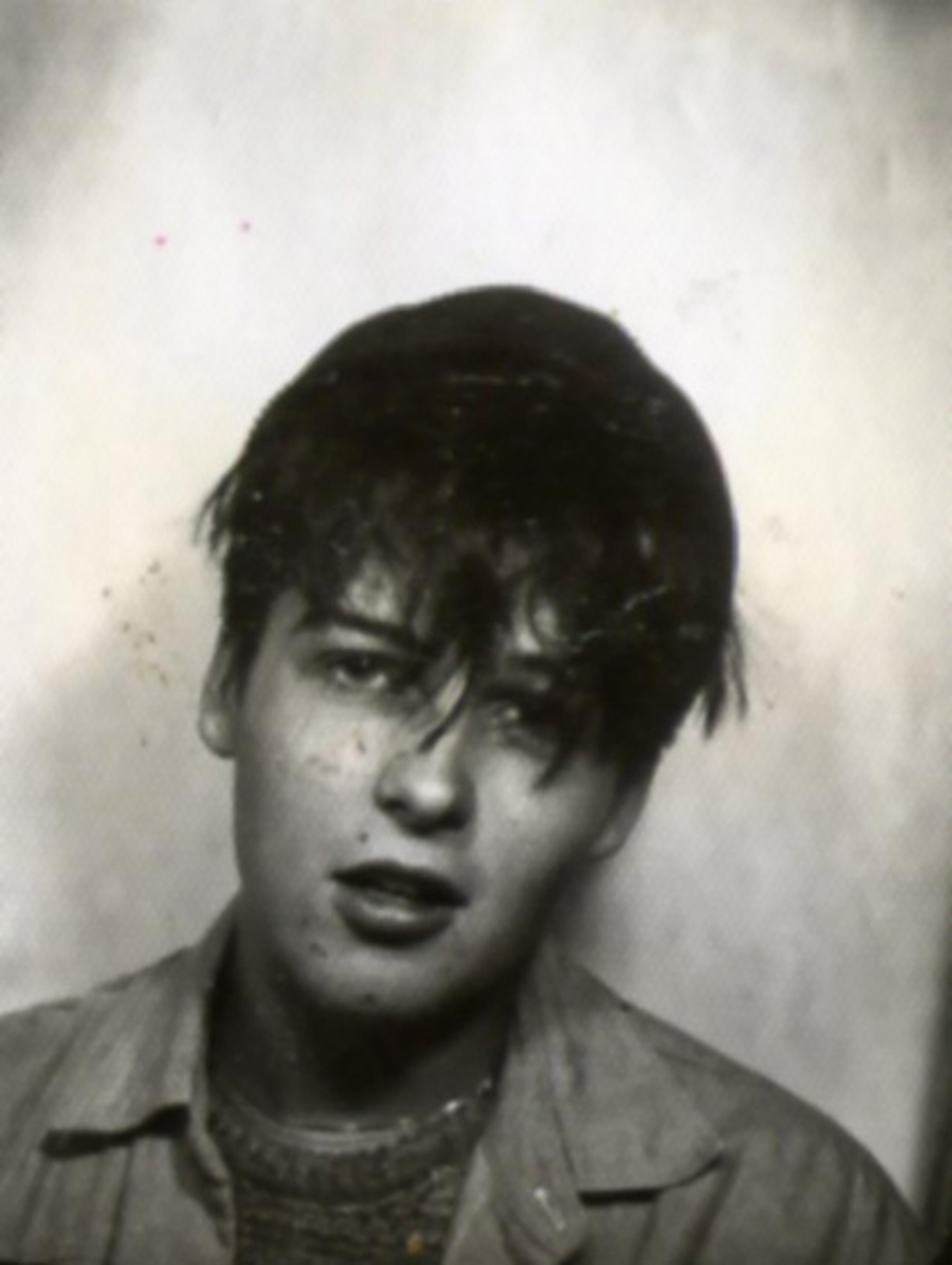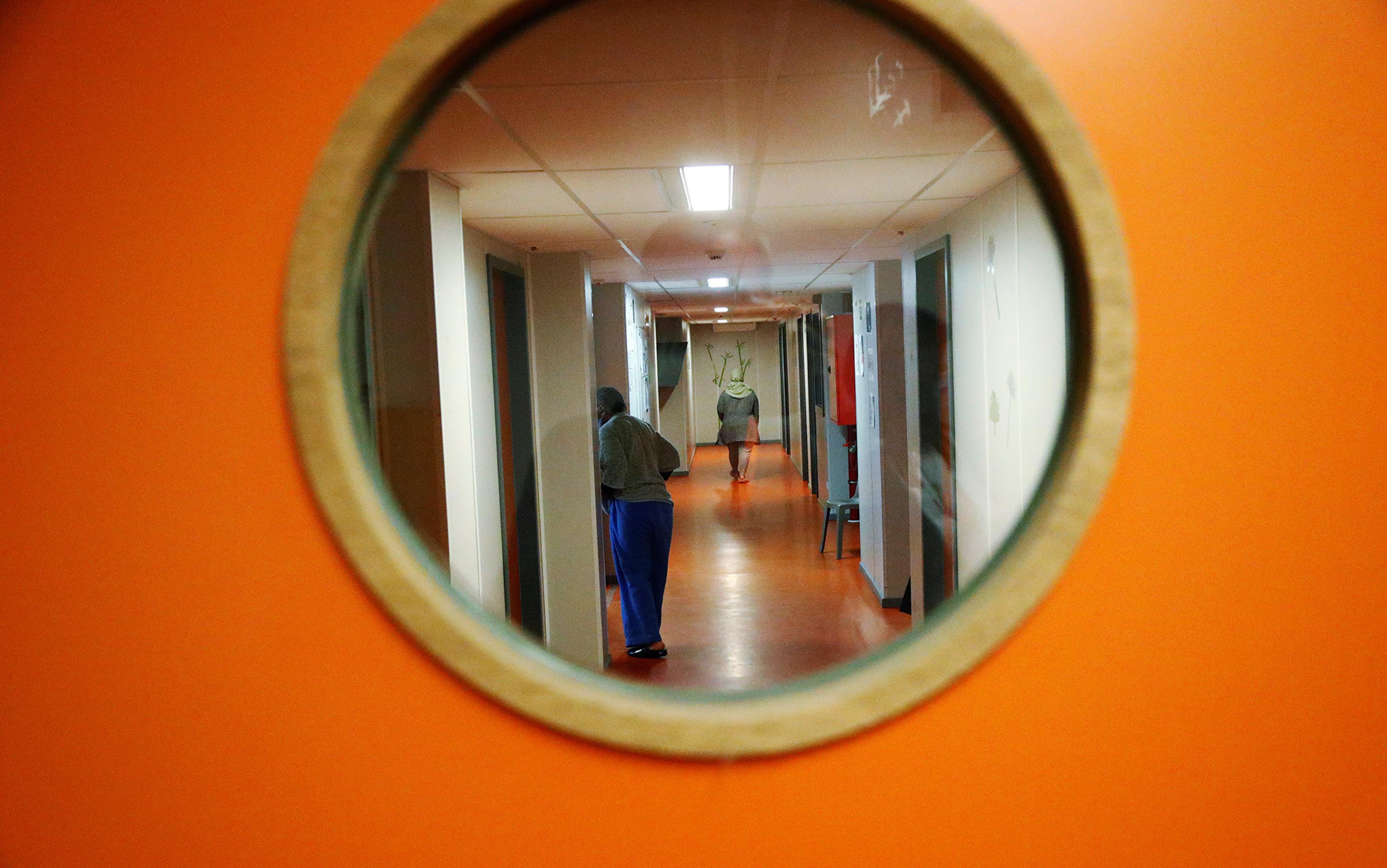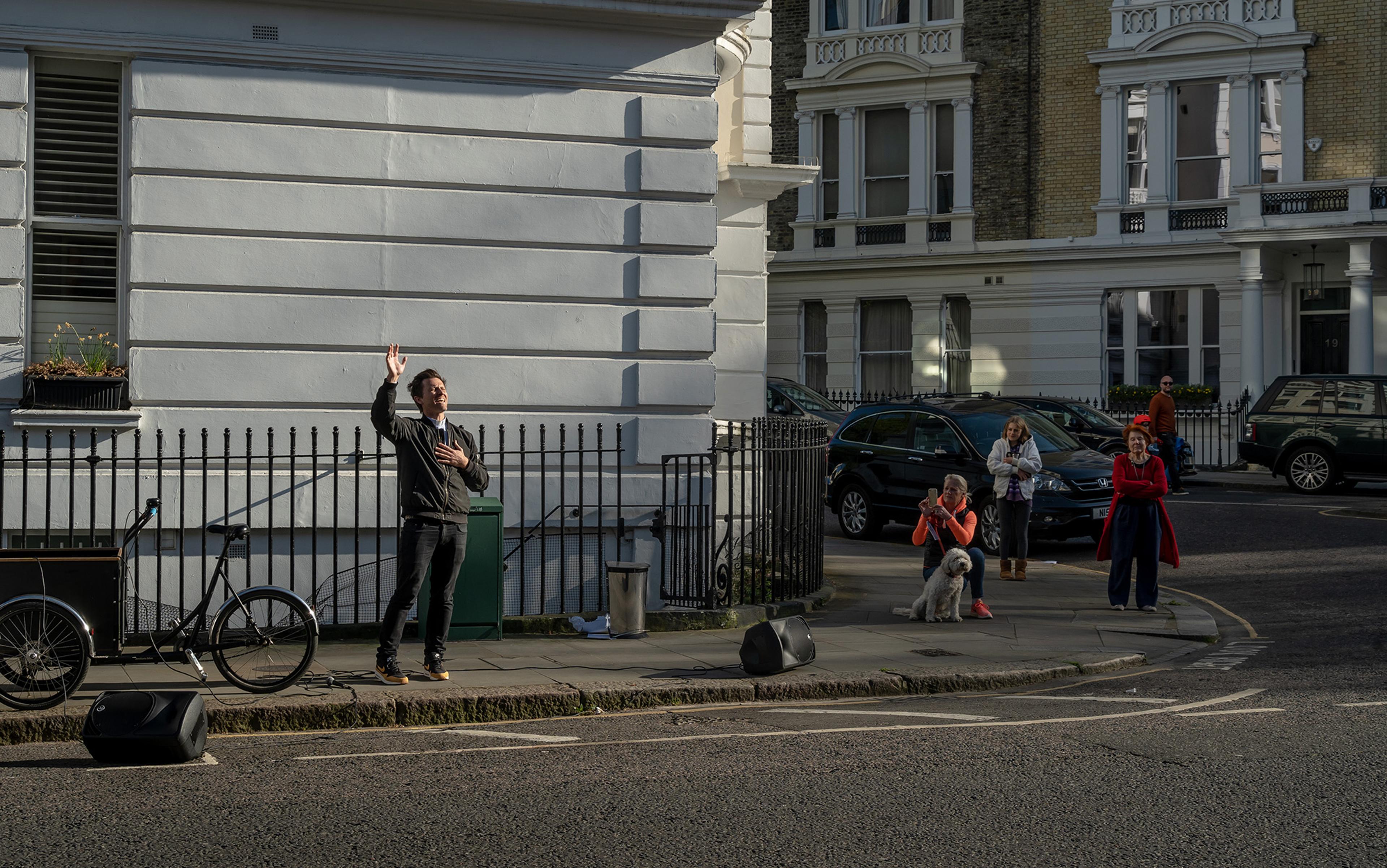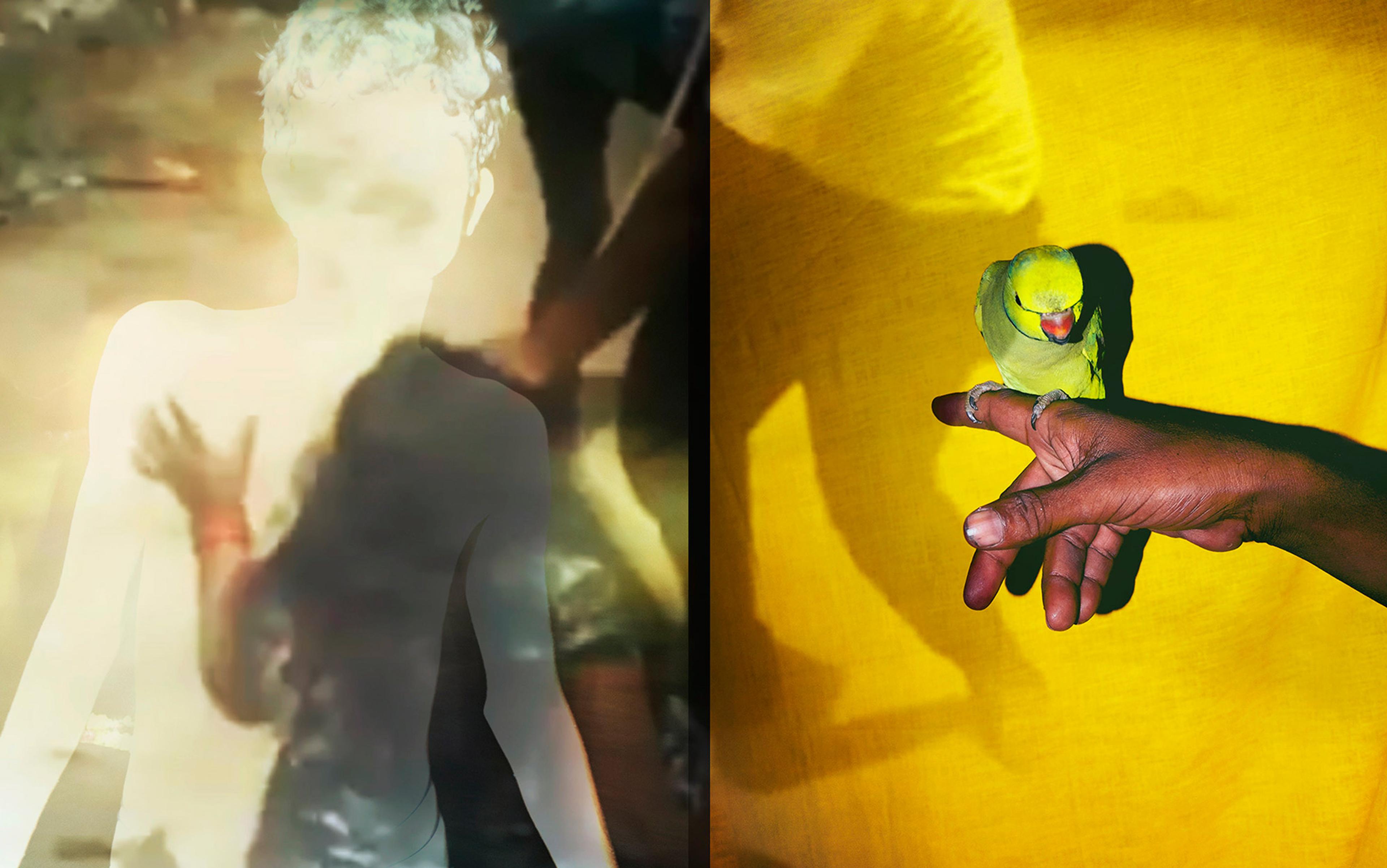What does it feel like to lose your grip on reality? I know the answer. Thirty years ago, I experienced an intense and terrifying episode of psychosis that lasted around 24 hours. It turned out to be a one-off, but it left me shaken and it permanently changed my attitude to my own mental health.
As a psychologist and neuroscientist, I often wondered whether my experience gave me any useful insight into the science of psychosis but, because of the stigma attached to mental illness, for many years I kept my experience a secret from all but my most trusted friends and family. Despite an increasing openness, there is still sometimes a reluctance to face up to the challenge of mental illness, especially around psychosis – a catch-all term for a set of symptoms that leads us to lose the shared sense of reality we normally take for granted.
I’ve decided to share my experience because I think that by speaking about psychosis more openly we can bring it into the light and encourage a conversation about urgent questions: what can be done to avoid or mitigate this kind of mental illness in ourselves, or in those we are closest to? How can we most effectively help people who experience a temporary departure from reality, and support those close to them?
In 1990, in my early 20s, I was a student in London coming to the end of my degree. My personal life was chaotic and turbulent. I had split from my long-term girlfriend, and moved house several times in a few months. I was flailing around socially, burning the candle at both ends. I was working hard on my final-year project, and had recently succumbed to a bad cold.

The author around the time of his temporary psychosis.
One afternoon, I was in a pub with some friends when I thought I heard a stranger utter my name behind me. Whether real or not, it was the start of something. What began as a sense of unease turned within minutes to paranoia. I was sure that the other people in the pub were talking about me. I felt they wanted to kill me, and somehow I knew they had brought tools (chisels and sharpened screwdrivers) with them to do it.
I tried to behave normally, but I was very uncomfortable, I kept shifting around, and my friends agreed to go to a different pub. But the fear continued to build, and I decided I needed to get far away. I arranged to stay with a friend who lived in a different part of town. I set off on my own but never made it there.
Halfway across London, I seemed to be picking up signs and signals from people around me. Everything seemed to be telling me to get off the Tube at Piccadilly Circus. So I did. I remember going into a sweetshop and hearing the opening of the old Shangri-Las’ song ‘Leader of the Pack’: ‘I met him at the candy store…’ It seemed like an amazing coincidence, laden with meaning. It was only much later, in retrospect, that I realised, of course, that they played candy-related songs on a loop.
I wasn’t really seeing or hearing things, it was just that almost everything around me seemed to be endowed with a special significance, and it all related to me! Every traffic signal, every flickering streetlight was a sign meant just for me. Every casual remark by a passerby was a coded message. I felt I was the protagonist – not in a fictional story or a movie – but in some kind of real-life spy scenario. This unfolding mystery was really happening to me and I had to make sense of it in real time.
By far the most intense aspect of the experience was the sense that my life was on the line: people were hunting me down, intending to kill me. With my life at stake, reality had taken on a much more urgent, florid vibe. Music was thumping everywhere I went. The city lights were flashing and pulsating. They always do, of course, but for me the whole effect was like a chase scene out of a movie. Despite being terrified, it was not a wholly negative experience. In fact, I must admit, I have never felt so alive. In an effort to throw off my pursuers, I covered a huge area of central London. I was moving quickly, making random turns, jinking this way and that, always just moments ahead of the assassins.
The ‘movie’ I was living had gone from a James Bond action sequence to a John le Carré thriller
As time wore on and it seemed I had, at least temporarily, outwitted the killers, the puzzle deepened. How had I survived so long? Was someone looking out for me, watching over me? It began to seem more like a kind of test; if I passed, somehow all would become clear.
Eventually, I found myself drawn by the flickering light of a welder’s torch on a tall building near the Strand. It turned out to be part of the Royal Courts of Justice complex, which was undergoing some kind of building work. Somehow, I sneaked in and made my way to the top. Travelling with construction workers in an external hoist, I posed, apparently convincingly, as a carpenter.
Scarily, I remember looking down at London from the roof. I felt completely exhausted, helpless and confused.
As I went back down into the building, things were calming down. It was as if the ‘movie’ I was living had developed from a James Bond action sequence to a John le Carré thriller. It was dark, quiet and no one was around. I found myself on a floor with some courtrooms and lawyers’ offices filled with legal files. Somewhere in these documents, I felt sure, was the solution to the mystery. As I read the heavily coded files, it seemed that they were all related to me and my secret mission. After studying the papers for some time, eventually I fell asleep on the floor.
As luck would have it, I remained undetected. In the morning, I left the Royal Courts of Justice, somehow making my way back across London via Holland Park to Shepherd’s Bush where I lived. I don’t remember how I got there but it might have been on foot. I was still rather delusional, but the paranoia had started to wear off, leaving me bewildered. I couldn’t quite work out how to complete my mission. I was hanging around car parks, looking out for a white undercover police car which would collect me and take me to some kind of debriefing. I am afraid I might have frightened the owners of one or two white cars that morning.
Finally, I got back to my flat where my flatmates (including my brother) put me to bed. I felt delirious and remember hearing the unsettling sound of cars revving their engines outside as I fell asleep. I think I probably slept for 18 out of 24 hours for the next few days.
I told my brother about my strange experiences, and I am very grateful for the simple way that he explained them to me: almost everything that actually happened (white cars, flickering streetlamps and so on) had been completely normal. It was only my thoughts – endowing everything with significance, and connecting everything back to myself – that had gone awry. Believe it or not, this was not obvious to me at the time, and I needed this sensitive handling, right at that moment, so that I could start to deal with what had happened.
In the days that followed, I began to accept that what I’d experienced so vividly and directly, what I’d believed in, had never been real. At first, it was not easy to take this on board. While outwardly I was soon behaving normally, I’d been shaken profoundly. I’d learned the hard way that nothing, however obvious it might appear, can be truly certain. I could no longer trust my own thoughts and beliefs. Paradoxically, this also made it hard to be absolutely sure that I had not really been part of some obscure and deadly plot. Part of me couldn’t quite let go of the delusions I’d formed, and the other part was terrified that my sanity was going to evaporate again at any moment.
Eating and sleeping returned to the normal pattern. I was soon ready to venture out to visit my doctor. He was unable to give a clear-cut diagnosis but said I should be alert to any recurrence of the symptoms.
Although I was studying psychology at the time of the episode – so I was aware of concepts such as paranoia and delusion – I had no sense that my thoughts and beliefs were unusual while the experience itself unfolded. In a way, this is the main lesson I gained from the experience: from the inside, a delusion feels just like any other belief – for me, at least initially, there was a complete lack of insight into the disconnect with reality. Indeed, as I recovered, I felt it was my unconscious failure to question what I was experiencing that lay at the root of the whole experience. My critical faculties seemed to have taken the night off! Perhaps, though, my background in psychology had helped me accept what my brother was telling me when he challenged my story the next day.
Had it revealed an underlying flaw in my character or a vulnerability in my mental make-up?
I also knew from my studies that psychosis was a defining feature of schizophrenia, one of the most common mental-health conditions, and one that can affect individuals over many years. The experience had been shatteringly frightening in itself, but I feared that it could be the beginning of something more lasting. My training might also have heightened my sense of the potential stigma around psychosis. If it slipped out, would people ever trust me enough to employ me in a responsible job?
I was able to return to my studies, and life went on. As months and years went by, I realised that my experience was an isolated one. I no longer worried about a relapse, but I was troubled. I never discovered what had caused it and worried that I’d somehow been at fault. Had it revealed an underlying flaw in my character or a vulnerability in my mental make-up? Even if these worries were misplaced, others, I suspected, might share them. It was not something I felt I could be open about.
After 30 years, I feel differently. There is considerably less stigma around mental health thanks to the efforts of campaigning charities, events such as World Mental Health Day and, perhaps especially, the willingness of prominent people such as Carrie Fisher, Stephen Fry and, more recently, Prince Harry to discuss their own experiences and to challenge taboos. There is still perhaps some distance to go in terms of attitudes to psychosis but, having seen the benefits of greater openness, I felt I could contribute by sharing my experience.
I am also incredibly lucky that I had the chance recently to reflect on this episode of my life with an expert in psychosis, the psychiatrist Paul Fletcher, a professor of health neuroscience at the University of Cambridge. I began by asking him about the possible causes of my experience.
Paul Fletcher (PF): Firstly, it’s important to remember that ‘psychosis’ is not a diagnosis. It is a description of a set of experiences that broadly encompass losing contact with the reality that other people are experiencing and agreeing upon. Clearly, your experiences would fit that description. The diagnostic process is in some ways secondary, because there are so many causes of psychosis, from a whole host of physical illnesses, stress, lack of sleep, to severe mental illnesses such as schizophrenia and bipolar disorder. Given that yours was a one-off experience that has, happily, not recurred, rather than looking for some formal diagnosis of mental illness as the underlying factor, we would be thinking about some acute perturbation – stress, lack of sleep or some physical illness or derangement, perhaps.
Tom Hartley (TH): People have suggested that my experience was ‘just’ a bad trip; I hadn’t knowingly taken any illegal drugs, but could it have been caused by someone spiking my drink, for example? At the time it didn’t seem likely, but it’s something that’s always troubled me, and I’ve never been able to rule it out.
PF: For something to come on so acutely, and also to be what sounds like a relatively isolated experience, albeit quite a profound and prolonged one, it did cross my mind that maybe there’d been some drugs involved or some physical illness or delirium-like state.
TH: It is true that I had been feeling feverish with a heavy cold, and had taken over-the-counter medication at the time of my episode, but I also felt that other factors related to the transition to adulthood might have contributed: the combined stresses of growing up, leaving home, feeling adrift socially and out-of-my-depth in a big city, working hard and not taking sufficient care of my general health, sleep and diet.
PF: Mid-to-late adolescence is a vulnerable period. One might argue that it’s when you’re already in a state of reality-testing, moving into a new identity, frame of mind and social role. And such experiences – as well as mental illnesses – characteristically emerge at that sort of time. The kind of experience you describe is not as unusual as people tend to think. There has been a tendency to see psychosis as something rare and necessarily a prelude to, or part of, severe mental illness. But single brief psychosis-like episodes, as they’re often referred to – or BLIPS (brief limited intermittent psychotic symptoms) – can be remarkably common. When I was training, we were taught that these were likely to herald a severe mental illness: that if you became psychotic, then more severe problems were ‘in the post’. I think most psychiatrists accept that’s no longer the case, and that these sorts of symptoms represent an ‘at-risk’ state but by no means inevitably precede something such as schizophrenia.
TH: One thing that’s intrigued and troubled me about the episode is the sense that my psychotic symptoms might have reflected some ingrained aspects of my character or personality – flaws even – and I’m conscious that this idea might underpin some of the stigma that attaches to mental illness.
First, I’m constantly seeing patterns in things, real and imagined. In everyday life, this can sometimes be positive, such as when I spot a real pattern in research data that others can’t yet see. But it also means false alarms when the pattern turns out to be an illusion. Could this tendency to see patterns be linked to the ‘apophenia’ (a tendency to see connections between unrelated things), which I experienced in my psychotic episode?
Second, I’ve often worried that the paranoia I experienced, where I was the protagonist in a kind of terrifying spy story, might reflect an egotistical side of my character. Perhaps, had I been a less egocentric person, I would have experienced different symptoms? Whether true or not, the experience made me more careful to manage my ego. In practical terms, though I’m not immune to overconfidence, the experience has made me wary whenever I feel I am getting too big for my boots.
It’s frightening to be the epicentre of what’s going on. But it feels special and, possibly, quite rewarding
PF: I wouldn’t discourage such speculations. They are, after all, incredibly interesting and it would be strange to ignore such a profound experience. With respect to your point about seeing patterns, this is one of the fundamental challenges we have as agents within the environment: to distinguish real from illusory patterns and associations. The work that I and others have done suggests that people set the bar at different levels: some more readily identify patterns and, indeed, under stress, some people are more prone to see patterns in noise. People who are more prone to hallucinations, seem, under certain experimental circumstances, to perform pattern-recognition tasks significantly more successfully than people who are not. It is a balancing act: if I err too far in one direction, I will see patterns when there are none, whereas if I err too far in the other, I will miss real patterns.
On the second point, paranoid thinking is about placing yourself at the centre of things, about feeling things are ‘about’ you, which is a common characteristic of psychosis. Of course, many of us have a tendency to do that, particularly under certain circumstances. If it’s habitual, that can be more akin to a paranoid personality trait: people like this tend to interpret the speech and actions of others from the perspective that these others intend harm to them. But it doesn’t sound like that’s what you’re describing?
TH: No, it was more narcissistic, if anything. You know, the sense that it’s all about me. ‘I’ve suddenly become James Bond!’ It felt quite good in some ways.
PF: Yes. People often describe that experience in psychosis. On the one hand, it’s a frightening experience to be at the epicentre of what’s going on. But at the same time, it feels special and important and, possibly, transiently quite rewarding. The person feels at the centre of things, just like a character in a film, in this case, like James Bond.
TH: What should someone who experiences these kinds of symptoms do?
PF: Not everybody has the luxury of a friend or relative they feel they can confide in, but the first thing is to try and find somebody to talk to, to seek support and, if necessary, seek professional help. It sounds like your brother was enormously helpful in saying the right thing at the right time.
TH: In the immediate aftermath of the episode, I was so shaken up that I found it difficult to see a doctor. Is that a common issue?
PF: Yes. Sometimes the very nature of the experience makes a person avoid professionals. After all, if this new set of beliefs has become their reality, why would they consult a professional? My experience of working with people who have developed severe mental illness has often been that they’d had several months of becoming increasingly preoccupied with thoughts that start as a small idea but grow to envelop their entire existence. They feel driven to understand the new ideas and this can become an overarching quest. Rather as you describe, they feel compelled to pick apart the pieces of the puzzle. This can be accompanied by a sense of isolation and withdrawal where they can lose all trust and confidence in people around them. Those are the very things that can make matters worse, because their ideas can then grow and develop in isolation without any further reality-testing from family or friends.
How can friends and family help a person who’s having or recently had a psychotic episode? Fletcher tells me it’s important not to further isolate or alienate someone who appears to have psychotic symptoms – avoid an angry or dismissive response. Instead, be supportive, be willing to talk about their experiences, acknowledge them. Provide reassurance where possible, and only very gently challenge their beliefs by offering alternative perspectives.
Current research suggests that around half of those who experience a brief episode of psychosis will go on to develop a longterm psychotic illness such as schizophrenia. The duration of the initial experience does not seem to be a significant factor in whether this happens. Conversely, repeated experiences, or experiences involving more dangerous or disturbing symptoms, are associated with greater risk. These analyses, of course, relate to people who come to the attention of medical services, and it is possible that many people who have isolated, short-lived experiences, as I did, will remain overlooked.
Psychiatrists specialising in psychosis will be aware of the growing understanding that it can be a fleeting phenomenon, but many frontline healthcare professionals might have trained before this was fully appreciated, so increasing awareness could help them provide better help and advice in the earliest encounters with confused patients.
Anyone who has experienced psychotic symptoms should seek professional help, and a family doctor is a good option if the immediate crisis has passed. A single episode need not be the precursor to serious and prolonged mental illness but, as my experience shows, it can be a profoundly unsettling experience. Current psychiatric thinking is that early intervention might help to minimise the chance of developing a more severe, long-term mental illness, so friends and relatives can play an important role in maintaining trust and helping people find the help they need.
If a longterm illness such as schizophrenia is diagnosed, this brings its own challenges, but help is available. Modern treatments, which can include community support, antipsychotic drugs and psychological therapies, often allow patients to manage symptoms effectively and avoid severe relapses. Again, family and friends can play an important role in helping patients monitor their mental state and encouraging them to keep up with their medication and therapy.
Even when we are not directly affected ourselves, we all have a part to play in combatting mental illness. To be prepared for this, we need to understand the way that psychosis can isolate people, leaving individuals to distrust others and even themselves. I hope that breaking through taboos and stigma will help us face down psychosis together.






